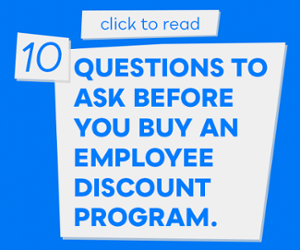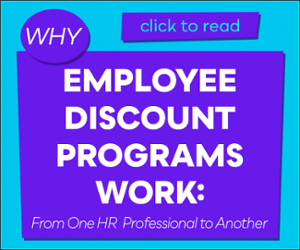Last week we shot down the myth that engaged, high-achieving employees are more expensive. In reality, they bring in more value than they cost. If your company aligns with their goals, they won't even need to be paid as much.
In other areas, we've made the correlation between employee engagement and customer engagement. Companies with a base of highly engaged employees are going to retain more of their customers, and make more money.
Still not sold?
Let's keep diving into the returns on engagement.
Can you put a price on the extra mile?
Is there an ROI for an employee that doesn't leak classified documents?
What about stealing supplies from the office?
The Complete Value of Engaged Employees
The returns on an engagement don't just reveal themselves in revenues and profits. To get a truly rounded measure of the benefits of engaged employees, you need to take a look at what's happening inside your office.
The idea that engaged employees do the small things to make a company successful makes sense. Research by the Temkin Group last year put some actual numbers to it:
Highly engaged employees are:
-
2.5 times more likely to stay at work late if something needs to be done after the normal workday ends
-
more than twice as likely to help someone at work even if they don’t ask for help
-
more than three times as likely to do something good for the company that is not expected of them
-
more than five times as likely to recommend that a friend or relative apply for a job at their company

Gallup took things a step further and added the element of high well-being along with high engaged. These high well-being and high engagement employees are sort of like office superheroes:
-
42% more likely to evaluate their overall lives highly
-
27% more likely to report "excellent" performance in their own job at work
-
27% more likely to report "excellent" performance by their organization
-
45% more likely to report high levels of adaptability in the presence of change
-
59% less likely to look for a job with a different organization in the next 12 months
-
18% less likely to change employers in a 12-month period
-
19% more likely to volunteer their time in the past month
There isn't much data to it, but we suspect this behavior has a way of catching on. Just as active disengagement can spread like a wildfire, positive engagement has a way of catching on as well.
What Engaged Workers Won't Do
Another way to measure the value of employee engagement is to look closely at what engaged workers won't do. Like steal stuff, or send your secrets to Wikileaks.
-
Just 37% of engaged employees would consider leaving for a 20% raise or less, compared to 54% of actively disengaged employees (Gallup)
-
26% of employees admit to sharing sensitive information outside the company (Sailpoint)
-
21% of employees steal from their offices (GetVoip)
In a surprising (but not really all that surprising) bit of research, engaged employees are far less likely to get sick or require time off for illness:
-
Actively disengaged workers are nearly twice as likely as engaged workers to have been diagnosed with depression (Gallup)
-
On a monthly basis, actively disengaged employees have 2.17 unhealthy days, compared with 1.25 unhealthy days for engaged employees (Gallup)
-
An engaged worker aged 40-49 costs $127.76 per month in lost productivity due to unhealthy days, while an actively disengaged worker in the same age range costs $236.20—an 85% increase (Gallup)
-
Engaged employees who also have high well-being are 37% more likely to report always recovering "fully" after illness, injury or hardship (Gallup)
It makes sense that people who like what they do will have some extra pep in their step. Anyone who's ever had a job they hated knows the feeling of dread that the alarm clock brings each morning. People find excuses to do more of what they love and avoid what they loathe.
Every Employee an Executive
Many companies short change employee engagement because it's too expensive and doesn't have a hard ROI. We know now those things just aren't true.
Yes, some elements of engagement come with costs. Longer-term employees will have higher salaries than new hires, most likely. Recognition programs, career development, employee perks, community involvement - these things have costs, sure.
The return on engagement is greater. And it shows itself in customer engagement and retention, but also in the behavior of employees who feel as much personal investment as the CEO. They're going to do the right things and go the extra mile because they want to see the business succeed as much as anyone.
That's invaluable, and worth pursuing.




